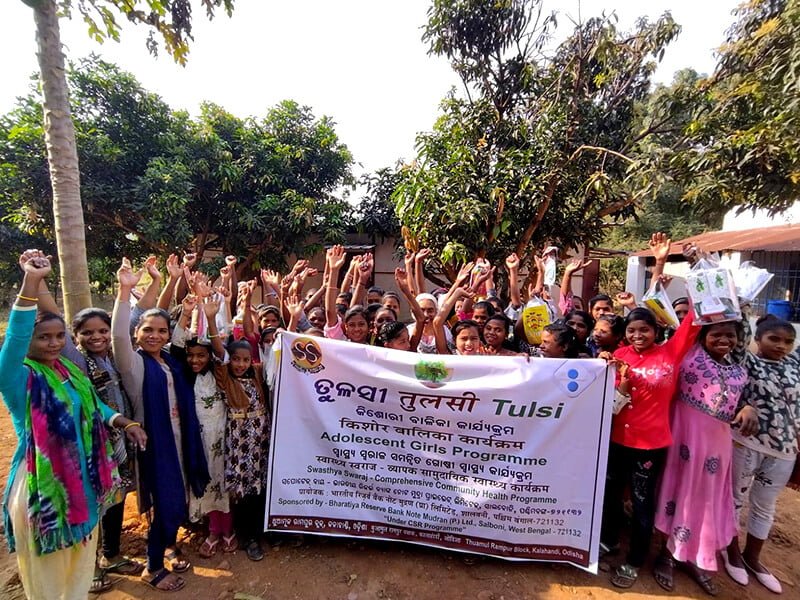Malaria being the foremost cause for mortality of under-five children, maternal mortality and morbidity, reduced productivity among the locals and highly endemic to our field area, the aggressive malaria control programme that Swasthya Swaraj runs is both clinic-based as well as community-based reaching out to the field areas with preventive and curative services.
Early diagnosis and complete treatment of malaria:
40-50% of the patients coming to both health centres have malaria – falciparum malaria being the predominant one (>90%). Both health centres provide facilities for admitting and managing severe malaria cases which is a medical emergency. This reduces death rates of especially many under-five children. The field staff and grass root level workers are trained in rapid diagnostic test (RDT) of malaria and thus detecting malaria without delay and initiating treatment. DOT (directly observed treatment) in malaria is often needed in the villages as the mothers are illiterate and do not force the children to complete the treatment. The first dose is given by the staff on the spot and subsequent doses are supervised by Swasthya sathi in the village. Swasthya Swaraj laboratory services in malaria are excellent and exemplary available round the clock and managed by expert lab technicians.
Preventive services:
- Training of the Swasthya Sathis, field animators and community nurses on various aspects of malaria. They are able to pick up danger signs of severe malaria and refer immediately.
- Mass screening for malaria in collaboration with government’s DAMAN programme periodically.
- Regular IRS (indoor residual spray) at regular intervals in collaboration with NVBDP.
- Malaria awareness programmes in the interior areas through street theatre, songs, dance and videos in the village meetings.
- Training programmes on malaria to students, teachers, guru gunyas ( traditional tribal healers)
- Intensive activity-based malaria education activities in 15 government primary schools.
- Mass health education programmes through cycle rally, public meetings etc in connection with National malaria day annually.
- Training programs for school teachers and local traditional healers in malaria
- Active screening of all pregnant women and under-five children regularly for malaria detection and treatment.
In the pipeline:
- Consolidation of gains in malaria control through behavioural change so as to lose the high endemic status of malaria in the block
- Participation in artemisinin resistance study with St John’s Research Institute, Bangalore.
- Malaria resource centre in one location.


